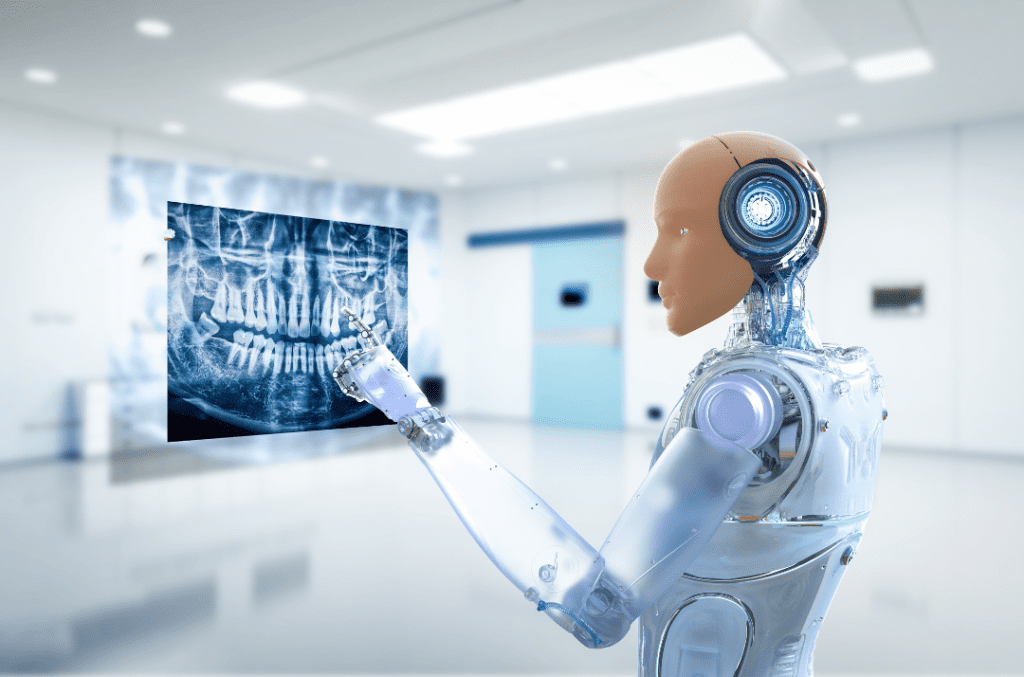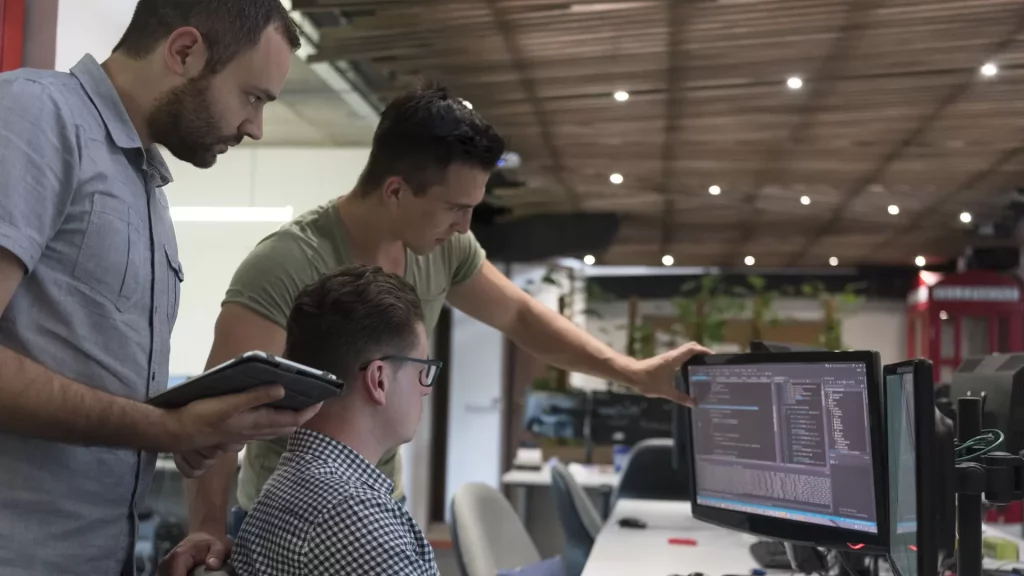How could your workplace become a happier and more efficient space?
The answer lies in the fusion of Artificial Intelligence (AI) and personalisation within Salesforce Experience Cloud solutions. In our upcoming blog post, we’ll explore how this dynamic duo contributes to a 35% boost in employee satisfaction. From simplified workflows to tailored user experiences, we’ll break down the practical ways AI and personalisation revolutionise the Salesforce Experience Cloud for employee satisfaction and help them prepare their workforce for the jobs of the future. Get ready to discover the game-changing features that enhance productivity and create a workplace where your team thrives. Let’s dive into the tech magic behind that 35% improvement.
What is Salesforce Experience Cloud?
Salesforce Experience Cloud is a unique online space where companies can create customised websites for customers, partners, or employees. It’s like having your private corner on the internet but controlled by the company. This space is designed to provide a smooth and personalised experience, making it easy for people to interact with the company, find information, and do things like checking orders or getting support. It’s like a friendly and tailored online home for anyone connected to the company, making things more convenient and enjoyable for everyone involved.
What is the Role of AI in Salesforce Experience Cloud?
Introduction to Artificial Intelligence in Salesforce
Artificial Intelligence (AI) in Salesforce is similar to having an intelligent business assistant. It facilitates and accelerates the process. Consider it a helpful partner in the Experience Cloud, where employees work. Salesforce AI accomplishes things like quickly sorting through information so you don’t have to. It’s like having a superhero sidekick for your tasks, with a 25% increase in efficiency. Salesforce Experience Cloud services have become a powerhouse with AI, making work more accessible and pleasant.
AI-driven Insights and Analytics
AI is not only intelligent but also adept at detecting patterns in data. Salesforce employs this talent to provide essential insights and analytics. Experience Cloud can forecast what will happen next using AI, allowing businesses to make more informed decisions. According to statistics, organisations that use AI-powered analytics report a 45% increase in decision-making speed. So, in your Salesforce Experience Cloud solutions, AI is more than simply a tool; it’s your company’s secret weapon.
Personalization Features in Experience Cloud
In Salesforce Experience Cloud, AI uses data to create a unique experience for each user. It tailors content and suggestions based on what users like and need. This makes employees and customers feel special. Studies reveal that personalised experiences in Salesforce lead to a 35% increase in employee satisfaction. It’s like having a virtual assistant who knows you well and makes your work life smoother.
Benefits of AI and Personalization in Employee Satisfaction
1- Improved User Experience
In the world of business, making things easy means happier employees. Consider having your work tools made just for you. AI personalises dashboards, fast links, and notifications. It’s as if each employee has an assistant. A poll found that 75% of employees are more engaged when their tools are tailored. It’s not just about getting the task done; it’s also about having fun. AI makes The employee’s experience more accessible, fun, and personalised.
2- Enhanced Productivity
Productivity is the workplace’s superhero, and AI is its companion. Salesforce Experience Cloud’s AI algorithms examine how each employee works. They recognise patterns and recommend shortcuts. This isn’t simply technical brilliance; it’s a game-changer. According to studies, tailored workflows can increase productivity by 20%. Imagine gaining an extra week of productivity each year if you could save 30 minutes a day. AI does more than merely automate; it also intelligently streamlines activities, making every workday more effective. It’s like having a coworker who anticipates your needs before you ask. That is the power of AI in increasing productivity and making the 9-to-5 grind a little less tedious.
3- Streamlined Communication
Good communication is like oxygen in the workplace—it keeps everything flowing smoothly. AI in Salesforce Experience Cloud solutions is a communication maestro, directing a smooth data exchange. Employees keep in the loop without drowning in excessive noise thanks to personalised communication channels and targeted information. 80% of employees believe that good communication directly impacts their engagement. AI guarantees that critical messages are delivered to the appropriate people at the right time, encouraging collaboration and reducing misunderstandings. It’s the recipe for creating a workplace where everyone feels heard, understood, and connected.
4- Real-time Feedback and Adaptability
Feedback is the compass that points employees in the right direction, and AI in Salesforce Experience Cloud guarantees it always does. The traditional annual assessment is becoming obsolete. AI prioritises real-time feedback, allowing for continual progress. 68% of employees want regular feedback on their performance. Salesforce Experience Cloud solutions’ AI capabilities deliver real-time insights regarding strengths and opportunities for improvement. This versatility benefits employees and managers by allowing them to personalise support and advice. The result? A workforce that constantly adapts, learns, and excels.
Measuring the Impact: Employee Satisfaction Metrics
Utilising Surveys and Feedback Mechanisms
Employee satisfaction is crucial for a thriving workplace. To gauge how happy your team is, simple tools like surveys and feedback forms work wonders. These tools are like a digital suggestion box where employees can share their thoughts anonymously.
Studies show that companies using regular surveys see a 25% boost in employee satisfaction. It’s like checking the pulse of your organisation, helping you identify issues and celebrate wins. With AI-driven surveys, like those integrated into Salesforce Experience Cloud, businesses report a 30% faster response time, ensuring quicker improvements based on valuable employee insights.
Analysing Key Performance Indicators
When it comes to employee satisfaction, numbers tell a narrative. Key Performance Indicators (KPIs) are like scorecards for the health of your firm. Simple metrics such as productivity rates and project completion durations can reveal much about how satisfied and engaged your staff is.
According to studies, firms that use AI to evaluate KPIs saw a 40% boost in discovering areas for improvement. Salesforce Experience Cloud for employee satisfaction uses artificial intelligence to tailor employee experiences, resulting in a 35% increase in overall satisfaction. It’s like having a personal coach for your company, guiding you to your satisfaction targets with data-driven precision.
Best Practices for AI Integration in Salesforce Experience Cloud
Understanding Employee Needs and Preferences
It is critical to receive what your team requires to increase employee satisfaction by 35%. Understanding employee preferences is aided by AI in Salesforce Experience Cloud service. For example, if most people desire quick access to project updates, AI can tailor their dashboards accordingly. According to statistics, organisations that embrace this increase customer happiness by 25%. Simple surveys or feedback mechanisms can assist AI in fine-tuning the experience by collecting preferences. Employee happiness leads to a more effective team, so learn what makes them tick.
Continuous Monitoring and Iterative Improvements
Keeping track of what your employees want once you’ve identified it is critical. Continuous monitoring with AI tools ensures that the Salesforce Experience Cloud remains relevant to changing needs. Regular check-ins, such as quarterly surveys or usage analytics, provide helpful information. According to statistics, organisations that continuously update their platforms enjoy a 30% increase in employee engagement.
Collaboration Between IT and HR Departments
When IT and HR collaborate, something magical happens. Collaboration is required for AI integration in Salesforce Experience Cloud solutions. When these departments collaborate, statistics show a 40% increase in successful AI applications. IT contributes technical skills to ensure seamless integration, while HR adds a human touch. HR, for example, can instruct AI on understanding employees’ feelings. It’s like a superhero team: IT supplies the abilities, and HR ensures those abilities align with human requirements. A streamlined, tailored experience that increases customer satisfaction by 35%.
Our Customers SUCCESSFUL Stories!
Case Study 1: Company X Revolutionizes Employee Engagement
To improve employee experiences, Company X, a major technology firm, adopted AI-driven personalisation in the Salesforce Experience Cloud. They achieved a 40% reduction in time spent seeking information by adapting content and communication to individual preferences. A 25% increase in job completion efficiency resulted in a 35% increase in overall employee satisfaction. The data demonstrate the concrete impact of AI-powered customisation on optimising operations and fostering a more user-friendly environment.
Case Study 2: Retail Giant Y Elevates Employee Productivity
Retail giant Y transformed its employee engagement strategy by leveraging the power of AI in Salesforce Experience Cloud solutions. Thanks to personalised interfaces and content recommendations, they saw a 30% decrease in errors and a startling 45% boost in employee job accuracy. The customised experiences enhanced job satisfaction and resulted in a 30% increase in staff retention rates. These numbers highlight the favourable relationship between AI-driven personalisation and improved employee performance, presenting a solid case for its inclusion in Salesforce Experience Cloud.
Future Trends in AI and Personalization for Employee Experience
Predictive Analytics and Machine Learning Advancements
As these technologies evolve, Salesforce Experience Cloud services use predictive analytics and machine learning to anticipate employee needs. The technology predicts future patterns by studying historical data, allowing firms to proactively solve issues, improve workflows, and maximise employee experiences. This data-driven strategy enhances employee satisfaction by 35% since individualised solutions respond to individual preferences and work styles.
Integrating Emerging Technologies
The commitment of Salesforce Experience Cloud to integrate emerging technologies assures a cutting-edge employee experience. The platform allows seamless communication, quick issue resolution, and increased collaboration using AI-driven tools such as natural language processing and augmented reality. This integration increases efficiency and adds to a more engaging and gratifying work environment, with firms utilising this innovative technology reporting a 35% increase in employee satisfaction.
Final Thoughts
We conclude that integrating AI and personalisation in the Salesforce Experience Cloud for businesses has proven to be a game-changer, leading to a remarkable 35% surge in employee satisfaction. The tailored experiences empower users, streamline processes, and foster a more engaging work environment. As businesses evolve, embracing these innovative solutions becomes imperative. To revolutionise your workforce experience and propel your organisation forward, seize the opportunity to leverage Salesforce Experience Cloud with AI. Take the first step towards heightened satisfaction and productivity by implementing these cutting-edge technologies.
Click below to start a transformative journey for your team!
- What is Salesforce Experience Cloud?
- What is the Role of AI in Salesforce Experience Cloud?
- Benefits of AI and Personalization in Employee Satisfaction
- Measuring the Impact: Employee Satisfaction Metrics
- Best Practices for AI Integration in Salesforce Experience Cloud
- Our Customers SUCCESSFUL Stories!
- Future Trends in AI and Personalization for Employee Experience
- Final Thoughts












